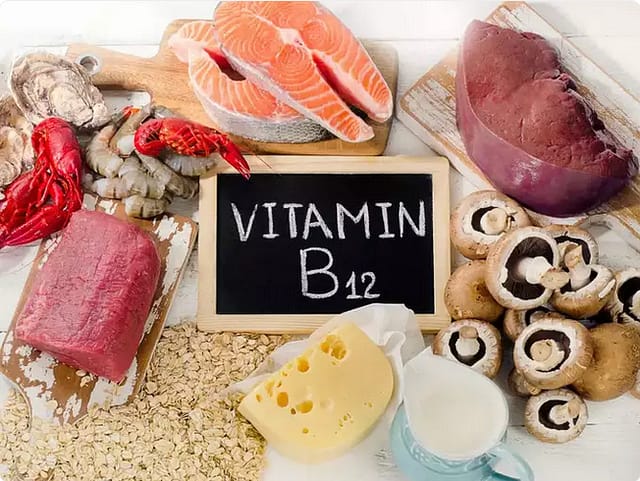Vitamin B12 deficiency, a silent epidemic, causes tingling, pain; vegetarians, elderly, and vegans at risk.
The severe deficiency of vitamin B12 has become the new ‘silent epidemic,’ health experts have warned. Latest reports say that more and more people are complaining about severe tingling, burning, and pain in hands and feet. Such symptoms are impacting sleep cycles of many individual around the globe.
According to a News18 report, people are silently suffering from the deficiency of Vitamin B12 which is a water-soluble vitamin that is excreted daily from the body through urine.
Deficiency symptoms mimic other conditions
Identification of signs of Vitamin B12 deficiency can at times be difficult as symptoms can be subtle or mimic other conditions which makes diagnosis more confusing.
The deficiency of Vitamin B12 is also a factor that causes loss of hearing and tinnitus. An experience was shared on X (formerly Twitter) by a user where her mother was inaccurately diagnosed, the News18 report said.
Silent sufferers of B12 deficiency
A doctor from Apollo said that in his OPD, almost two to four patients are diagnosed daily with Vitamin B12 deficiency which makes it around 50-60 cases per month. “Early diagnosis and prompt initiation of treatment results in good clinical improvement,” he added.
The deficiency of Vitamin B12 is easily treatable, however, the lack of this vitamin can cause serious complications, including peripheral neuropathy, dementia, psychosis, tremors, depression, seizures and megaloblastic anaemia.
Tiredness, sore tongue, confusion, memory loss and weakness are also the result of B12 deficiency.
What is Vitamin B12 & How it works?
The deficiency of Vitamin B12, also known as cobalamin, is diagnosed more often among vegetarians as it is naturally present in animal-derived foods.
Vitamin B12 is vital for red blood cell and DNA formation, and it supports brain and nerve cell growth and function. It binds to dietary protein, gets released in the stomach by acid and enzymes, and then pairs with an intrinsic factor to absorb into the small intestine.
As per the Harvard TH Chan School of Public Health, the Recommended Dietary Allowance for individuals aged 14 years and older is 2.4 micrograms (mcg) of Vitamin B12 daily. During pregnancy and lactation, this requirement increases to 2.6 mcg and 2.8 mcg daily, respectively.
Fish, meat, eggs and poultry are some rich food sources for B12. However, dairy products also include the vitamin such as milk, cheese, and yoghurt.
Who should be more careful?
Vegetarians and vegans are at a higher risk of Vitamin B12 deficiency as they exclude animal-based products which is primarily the main source of the vitamin.
Certain populations, including older adults and individuals with gastrointestinal issues or surgeries impacting nutrient absorption, are more susceptible to Vitamin B12 deficiency. Medications like metformin (used for Type 2 diabetes) and drugs that reduce stomach acid can hinder B12 absorption.
For those on a plant-based diet, fortified foods like plant-based milk, cereals, and nutritional yeast offer alternatives. Supplements or injections help restore B12 levels, detectable via a simple blood test. An antibody factor panel test confirms the body’s ability to digest B12 through supplements.
Recognizing symptoms, consulting healthcare providers, and addressing the deficiency promptly is crucial to prevent lasting damage.

